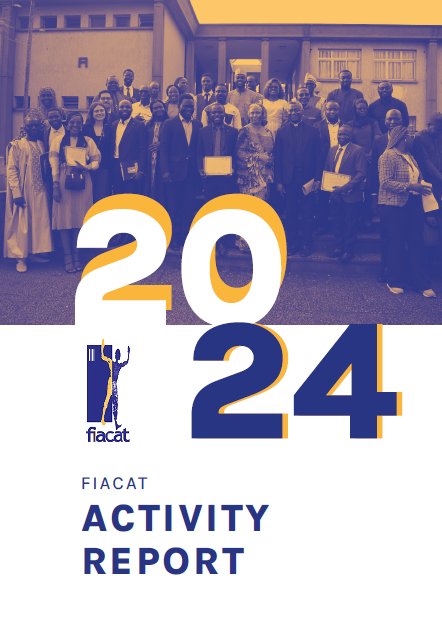International Day in Support of Victims of Torture: Call for the decriminalisation of petty offenses in Benin, Cameroon, Congo, Côte d’Ivoire, and Madagascar
26 June 2025
This report was co-signed by 15 organisations (list below)
Executive summary
Petty offenses are low-severity crimes punishable by non-custodial sentences such as fines, or alternatively or cumulatively, by short prison terms. These offenses, often vaguely defined, enable targeted repression of certain population groups: precarious individuals, homeless people, informal sector workers, migrants, youth, or activists.
In Benin, Cameroon, Côte d'Ivoire, Madagascar, and the Republic of Congo, laws penalising poverty-related offenses such as begging or vagrancy lead to the arrest of people living in precarious conditions. The criminalisation of petty offenses is also used to suppress behaviors considered deviant, such as alcohol or drug consumption, prostitution, or witchcraft; as well as violations of sexual, reproductive, and family norms such as homosexuality, adultery, and abortion. Simultaneously, civic space is restricted by legislative provisions penalising freedom of expression and freedom of association, used against activists, journalists, and human rights defenders for political purposes.
This report analyzes how the repression of petty offenses, far from being based on acts causing real harm, relies on real or presumed behaviors linked to poverty, status, or activism. Drawing on the criminal law of the aforementioned states as well as regional and international instruments and mechanisms for the protection and promotion of human rights, this report highlights that:
- The criminalisation of petty offenses disproportionately exposes vulnerable and marginalized persons to an increased risk of arrest and incarceration due to their position within society and public space;
- Pre-trial detention is systematically used for petty offenses, largely because targeted individuals lack the resources to pay fines or access adequate legal defense;
- This practice contributes to court backlogs and prison overcrowding, leading to detention conditions amounting to ill-treatment;
- Persons targeted by petty offenses often face multiple vulnerability factors, which expose them to even more degraded detention conditions, as these are ill-adapted to their specific needs, severely compromise their chances of long-term reintegration, and reinforce their stigmatization.
These findings call for urgent action by states to revise or repeal laws penalising petty offenses targeting poverty, status, and activism, and urge the undertaking of a profound reform of the legal framework and judicial practices by adopting a human rights-centered approach. Conducting an in-depth legal study on the link between the criminalisation of petty offenses and the prohibition of torture as well as cruel, inhuman, or degrading punishments or treatment is an essential step.
Co-signatory organisations
- ACAT Benin
- ACAT Cameroon
- ACAT Canada
- ACAT Congo
- ACAT Côte d’Ivoire
- African Policing Civilian Oversight Forum (APCOF)
- Dullah Omar Institute
- Harm Reduction International (HRI)
- International Federation of ACATs (FIACAT)
- Omega Research Foundation
- Organisation contre la torture en Tunisie
- Penal Reform International (PRI) – Africa
- Prison Insider
- Relais Prison Société
- World Organisation Against Torture (OMCT)




